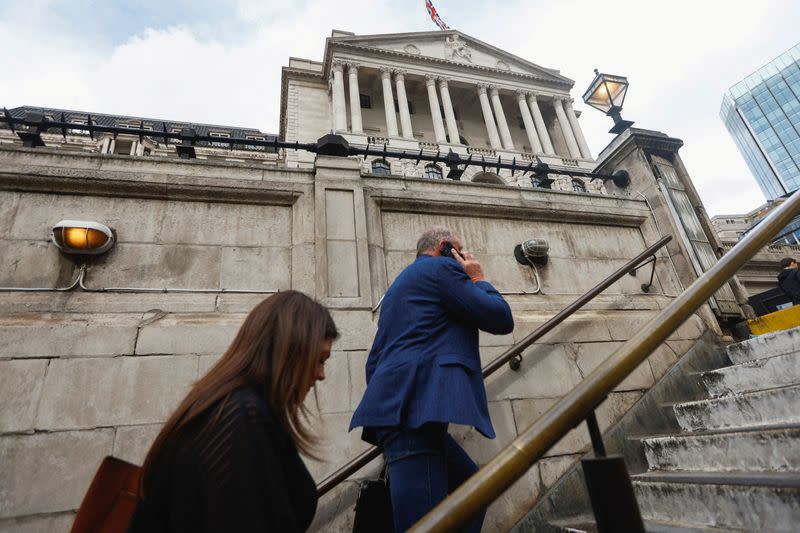Bank of England's Greene encouraged by cooling inflation persistence

LONDON (Reuters) - Bank of England policymaker Megan Greene said on Thursday she was encouraged by signs of easing persistence in inflation, but that she would need to see more evidence before voting to cut interest rates.
Greene, an external member of the Monetary Policy Committee (MPC), said she judged that the current level of Bank Rate - held at 5.25% in February - was restrictive enough to bring inflation back to the BoE's 2% target.
Her stance aligned closely with that of BoE Governor Andrew Bailey, who said on Wednesday that he too had been encouraged by recent inflation data - but was waiting for more evidence that longer-term inflation pressures were clearly abating.
"Recent signs of persistence starting to ease are encouraging," Greene said in the text of a speech delivered at Fitch Ratings in London.
"I would need to see further evidence that inflation persistence is less embedded than previously feared before I would consider voting to loosen policy."
Greene, a U.S. economist, voted with the majority of MPC members this month to hold interest rates, although she has previously sat on the more hawkish side of the committee since joining in July.
She said Britain was more vulnerable to inflation pressure than other countries, especially the United States, and cited Brexit and a longer-lasting hit to the economy from the COVID-19 pandemic.
"All else equal, this would mean inflationary pressures are greater in the UK. But UK demand has been weaker than in the U.S. as well," Greene said.
Earlier on Thursday, official data confirmed Britain's economy had fallen into a technical recession.
(Reporting by William Schomberg, Suban Abdulla; writing by Andy Bruce; Editing by Sachin Ravikumar)

 Yahoo Finance
Yahoo Finance 